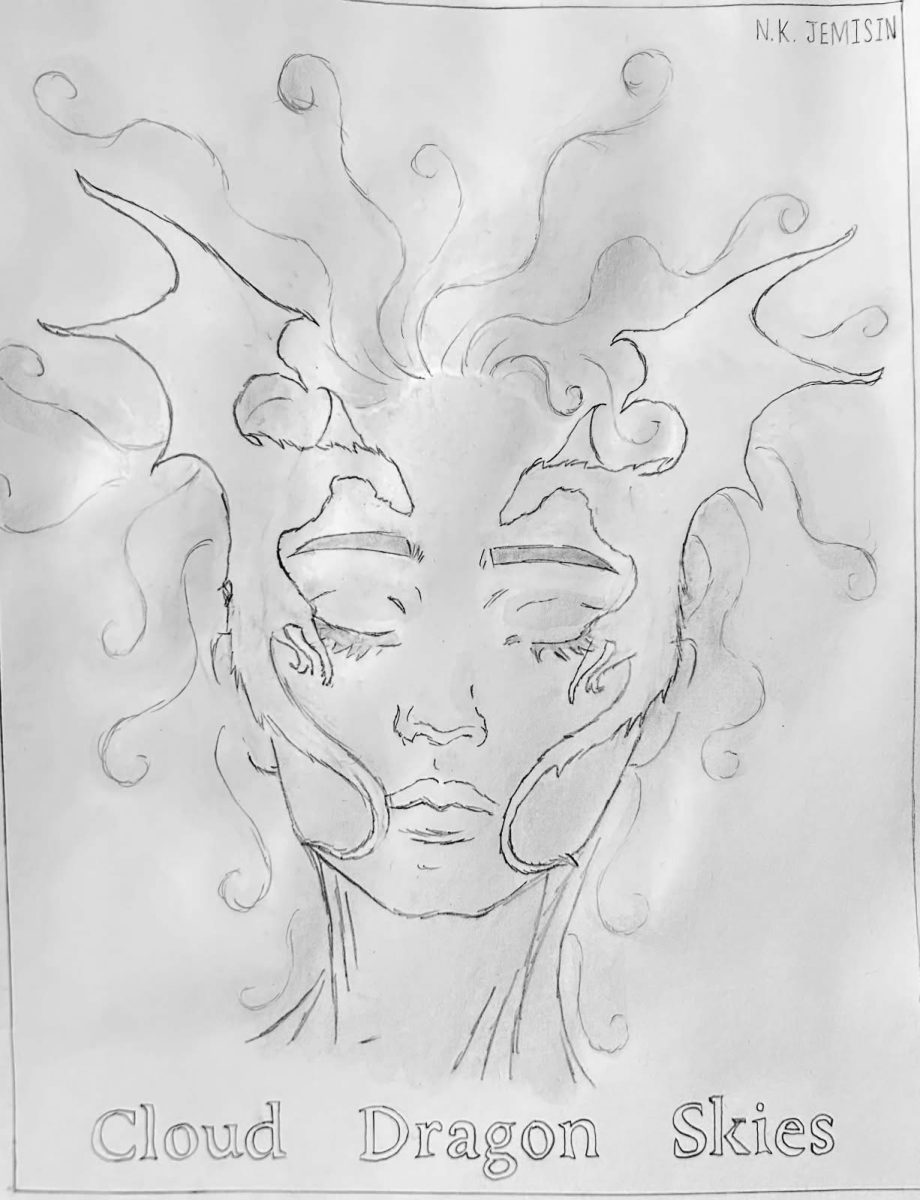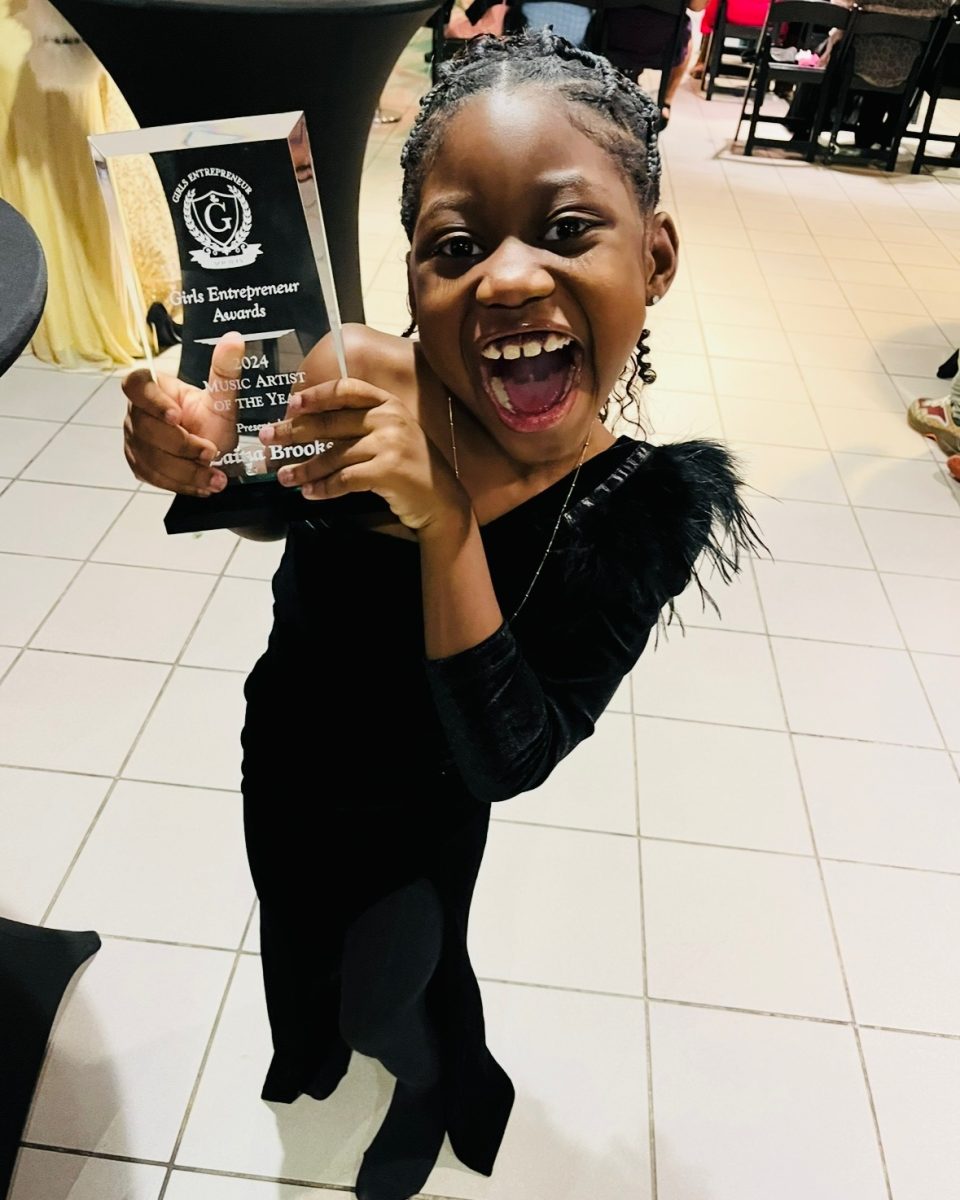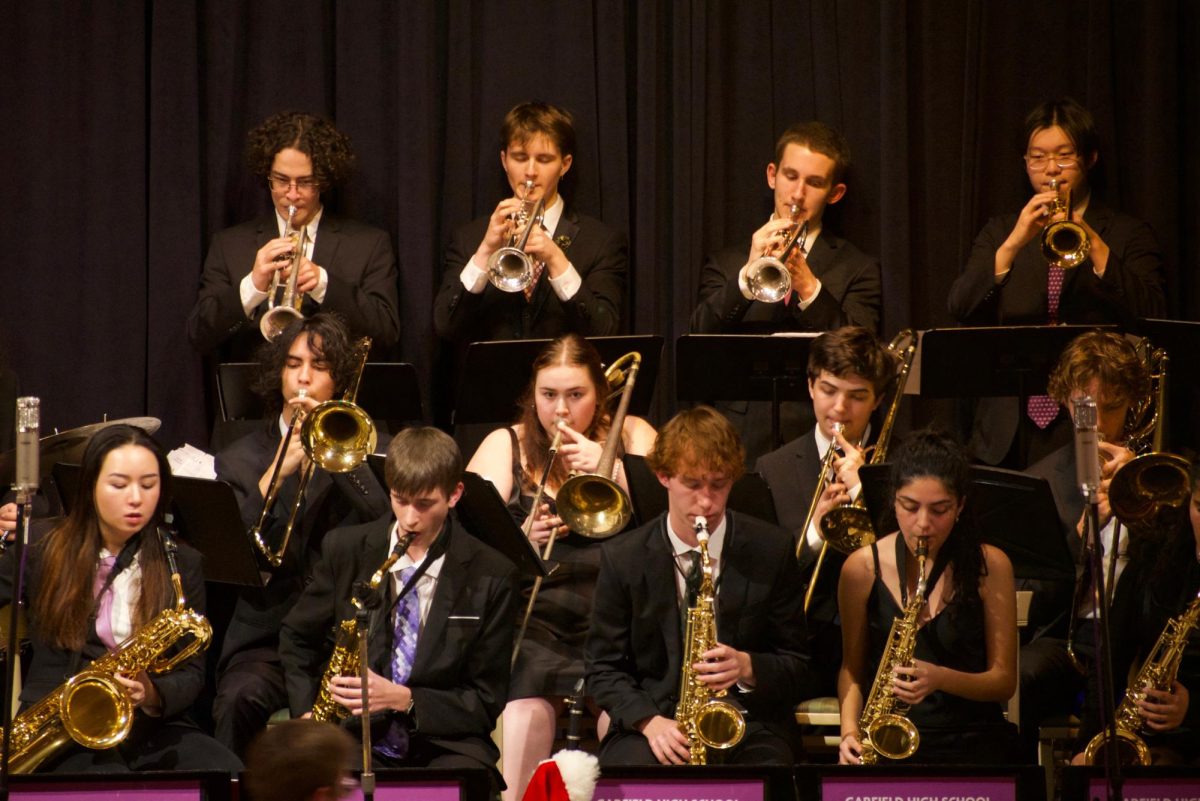As far as resources for women go at Garfield, there are always pads and tampons at the Teen Health Center, as well as many health and wellness services. However, something Garfield has struggled to maintain consistently is a space where girls can meet and share community with one another. Over the years, there have been various “girls’’’ clubs: Period Club, GirlUp, Girls Who Code, Women in Stem, Girls Support Girls, etc; All of which have ultimately stopped meeting. Some of the clubs ended with the pandemic, some ended with a graduating class of seniors, and some of them have evolved into new clubs. Which means there are currently no spaces at Garfield dedicated as safe and reliable for the female community. While students struggle to establish a space for girls, Garfield has also struggled to acknowledge Women’s History Month. “I haven’t seen anything by the school [for Women’s History Month], I haven’t really heard anything in my classes, and I don’t think a lot of people other than women have wished me a happy women’s month.” Garfield Senior Abby Nakamoto said. As the school struggles to establish a way to acknowledge women, here is what some girls had to say about their experiences at Garfield.
Abby Nakamoto is in her Senior year at Garfield. She is a committed student, artist, and leader. After the pandemic, she helped restart the Visual Arts Club, was nominated as a National Merit Scholar, and she has multiple roles within the POST program, including president of the Executive Committee and head of finance. She is committed to Stanford University and is hoping to study research science and marine ecology.
Q: How do you feel your experiences as a young woman in high school differ from those of your male peers?
A: “The social scene for girls is much different than for guys. There are a lot of social expectations placed on girls like with body image or feeling confident as leaders in STEM. I don’t think that is totally gone at Garfield.”
A: “Women who are leaders are looked at differently than men who are leaders. Women who take authority are often seen in a more negative light than men who take authority.”
Q: How do you feel women are treated differently or experience things in a different way in academic spaces at Garfield?
A: “I don’t think there is a huge achievement gap between male and female students in Garfield classes compared to other places in the country, which I really admire. I think there are a lot of strong women role models in my classes.”
Q: Have you had any personal experiences at Garfield that were impacted by your gender?
A: “In some of my science classes, I have had experiences where it is just me and a table of guys, and they could be kind of dismissive of my thoughts and ideas until we kept working together and they realized that sometimes I may have the right answer.”
Q: If you could give another Garfield girl a piece of advice, any piece of advice, what would you tell her?
A: “Try new things. Put yourself out there and try new things. That is my number one piece of advice. I think the best way to enjoy your highschool experience and to grow as a person, a student, a friend, a collaborator, is to become involved in a community that you really like.”
Lauren Foster
Garfield Junior Lauren Leary Foster is a part of many different communities at the school. She plays volleyball on the school team, is co-president of Nobody Eats Alone Club–formerly Girls Support Girls Club–and is very active as a student leader. She is the public relations officer for Garfield ASB and is in charge of finances and fundraisers.
Q: How do you feel women are treated differently or experience things in a different way than male peers at Garfield?
A: “There’s been times when I’ve definitely felt underestimated, but Garfield does a really good job in promoting [women] in leadership spaces and ASB.”
Q: Have you had any personal experiences at Garfield that were impacted by your gender?
A: “When I was a freshman and a sophomore, I know I felt very lost at times because I don’t have an older sister to go to for guidance. I think it is really important for there to be spaces where girls can feel safe asking questions and talking about things that aren’t talked about in their other classes or extracurriculars.”
Q: If you could give another Garfield girl a piece of advice, any piece of advice, what would you tell her?
A: “My one piece of advice is to not be afraid to ask questions. Find a space where you feel comfortable and aren’t afraid to ask for advice. A lot of the time as girls, we have similar experiences and go through similar things and chances are if you ask another girl a question, she may have had the same experience as you and can give you guidance.”
Ayar Newman
Newman is a freshman at Garfield this year who has been praised by her teachers as one who uplifts those around her. She plays the cello in the Seattle Youth Symphony Orchestra and the Seattle Chamber Music Society and is also an officer for the Chamber Music Club at Garfield.
Q: How do you feel your experiences as a young woman in high school differ from those of your male peers?
A: “A woman will dress in some way and then she will be undervalued and underestimated I think. People really tend to latch onto the stereotypes… I think it’s just peer underestimation.”
Q: How do you feel women are treated differently or experience things in a different way in academic contexts at Garfield?
A: “I think there’s a lack of respect and there’s a lack of care too. I don’t think we are given the resources (to succeed) even though I do think we have an individual experience. And I think that you know both men and women or however you identify could definitely use separate resources.”
Q: Have you had any personal experiences at Garfield that were impacted by your gender?
A: “I definitely experience over sexualization a lot. Especially when I was younger, I’ve definitely had that more, when I was in a more vulnerable state. It made me really question who I was and my value. I think a lot of things really got to me.”
Q: If you could give another Garfield girl a piece of advice, any piece of advice, what would you tell her?
A: “I think it would be to never underestimate yourself. Always put your needs first.”
Amina Buribayeva
Buribayeva is a Sophomore exchange student from Kazakhstan. She started robotics a few years ago following her sister and has now attended international robotics competitions. As well as robotics she also has done debate and swimming.
Q: How do you feel your experiences as a young woman in robotics differ from those of your male peers?
A: “In my home country in Kazakhstan I used to do robotics at my school for 2 years now, and we went to World competitions, one in Houston and another in Panama in November. There aren’t a lot of girls in STEM or in robotics but I would say it’s pretty supportive. And there are some girls and we do some stuff together.”
Q: How are women treated in robotics?
A: “Sometimes the community can be kind of toxic to girls… I think sometimes toxic boys come over… they don’t think that you can do something…The robotics community… tried to fix this problem by requiring at least one girl in a team to participate in competition.”
Q: How do you feel women are treated differently or experience things in a different way than male peers at Garfield?
A: “I know one girl who used to go to the chess club but she said it was a very toxic community over there. Especially for girls. In classes no but I think in after school clubs yeah maybe.”
Q: If you could give another Garfield girl a piece of advice, any piece of advice, what would you tell her?
A: “Be confident in what you’re doing. And not giving up if you really like this thing that you’re doing.”






